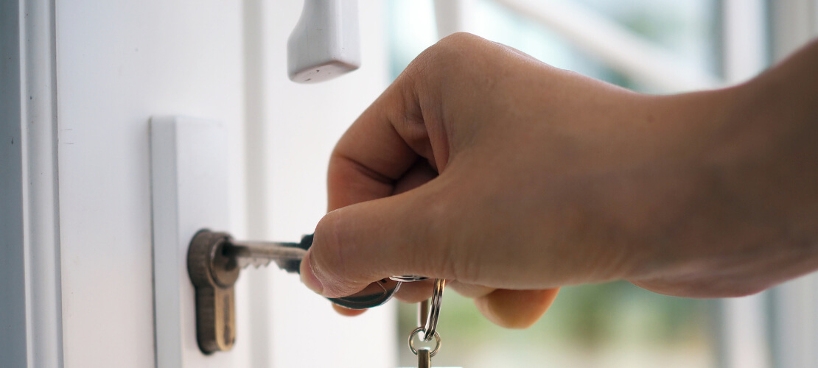
December 12th, 2019 by
A Simple Guide to New Energy Efficiency Laws
Landlords have a responsibility to make sure all their properties meet the highest standards for their tenants. This probably won’t be news to you, but actually understanding the laws and regulations you have to abide by is harder than it sounds. Some of the more complicated issues are energy efficiency laws, particularly the regulations that govern heating. These have changed a lot over the last few years and will be changing again in 2020. That’s where we come in – we’ve done the research so you don’t have to, and we’ve broken down everything you need to know into a jargon-free guide.
The Law
There are two main sets of laws you’ll need to follow when it comes to heating – Lot 20 and the MEES regulations. These two sets of regulations are complicated but very much linked, so it’s important to understand how each one works.
EcoDesign Directive Lot 20
 There are two words you’ll see over and over again in this article – Lot 20. Lot 20 is the name of the law that covers electric heating. It’s part of the wider EcoDesign Directive, an EU project designed to reduce the amount of energy we use by 20%. Lot 20 states that every heater manufactured after 1st January 2018 must meet strict energy efficiency standards. Any electric heater installed in your properties must meet these standards.
There are two words you’ll see over and over again in this article – Lot 20. Lot 20 is the name of the law that covers electric heating. It’s part of the wider EcoDesign Directive, an EU project designed to reduce the amount of energy we use by 20%. Lot 20 states that every heater manufactured after 1st January 2018 must meet strict energy efficiency standards. Any electric heater installed in your properties must meet these standards.
How do you know whether a heater is up to standard? It’s worked out using a points system – each eco-friendly feature (such as a thermostat or a timer) your heater has is worth a certain number of points. Tot up your points total and add 30 to it – this is the baseline number that every heater starts with. If your heater reaches its Lot 20 target score, it’s passed.
 Sounds simple, but sadly, there’s a little more to it than that. Different types of electric heater have different targets, while some features are worth more or fewer points depending on what sort of heater it is. For example, if you have a wall-mountable panel heater, it’ll only score 1 point if it has a mechanical thermostat. On a portable panel heater, however, a mechanical thermostat is worth 6 points.
Sounds simple, but sadly, there’s a little more to it than that. Different types of electric heater have different targets, while some features are worth more or fewer points depending on what sort of heater it is. For example, if you have a wall-mountable panel heater, it’ll only score 1 point if it has a mechanical thermostat. On a portable panel heater, however, a mechanical thermostat is worth 6 points.
To find out which features score what for each type of heater, consult our Lot 20 Calculator.
As if that wasn’t enough, each type of heater has different targets. These targets are:
- Fixed Heaters 38 - this covers every heater that comes with the option of being wall-mounted. Even if you use your heater as a portable unit, if it’s suitable for wall-mounting, it’s classed as fixed!
- Portable Heaters 36 - this only covers heaters which can’t be wall-mounted at all.
- Low Wattage Heaters 34 – this covers any heater of 250W or lower.
- Storage Heaters 38.5 (digital storage heaters start with a higher baseline score)
- Radiant Heaters 35
Lot 20 and Brexit
You may have raised an eyebrow when reading that Lot 20 is an EU project. Naturally, you’re probably wondering how Brexit affects all of this. Luckily, it doesn’t! Our government has already signed up to this change and copied it into UK law, so it won’t be affected at all.
Domestic Minimum Energy Efficiency Standard Regulations (MEES)
 MEES regulations are a little broader than Lot 20 – they’re UK laws that cover the energy efficiency of your entire home, not just heating. However, as heating is by far the biggest source of wasted energy among UK households, the two are very closely linked. If you have old, outdated heating in your property, it’s highly likely that you’ll fall foul of MEES laws. Likewise, updating your property with some modern electric heaters is an affordable way to get it up to standard.
MEES regulations are a little broader than Lot 20 – they’re UK laws that cover the energy efficiency of your entire home, not just heating. However, as heating is by far the biggest source of wasted energy among UK households, the two are very closely linked. If you have old, outdated heating in your property, it’s highly likely that you’ll fall foul of MEES laws. Likewise, updating your property with some modern electric heaters is an affordable way to get it up to standard.
MEES laws are complicated, but the thrust of them is quite simple. They assign your property with an energy efficiency grade ranking from A-G. You need to make sure any property you rent is at least rank E or higher before 1st April 2020. You’re expected to pay up to £3,500 to get it up to standard (anything more than that and you can apply for an exemption), so you’ll want to get the most for your money. That’s why upgrading to electric heating is strongly advised.
Find an Electrician You Can Trust
 With the MEES deadline looming, it’s never been more important to find quality Lot 20-compliant heaters. However, not every heater is compliant. This is because retailers are still allowed to sell units that were made before 2018 (although they aren’t allowed to advertise them as Lot 20 heaters). It’s worth bearing in mind that Electricians aren’t obliged to source Lot 20 compliant heaters for you even though you’re obliged to have them, so checking this is your responsibility. Most reputable electricians will be aware of Lot 20, but you should always specify that you want Lot 20 heaters and double-check before they’re installed.
With the MEES deadline looming, it’s never been more important to find quality Lot 20-compliant heaters. However, not every heater is compliant. This is because retailers are still allowed to sell units that were made before 2018 (although they aren’t allowed to advertise them as Lot 20 heaters). It’s worth bearing in mind that Electricians aren’t obliged to source Lot 20 compliant heaters for you even though you’re obliged to have them, so checking this is your responsibility. Most reputable electricians will be aware of Lot 20, but you should always specify that you want Lot 20 heaters and double-check before they’re installed.
Comments
Leave a reply
Your e-mail address will not be published. All fields are required


